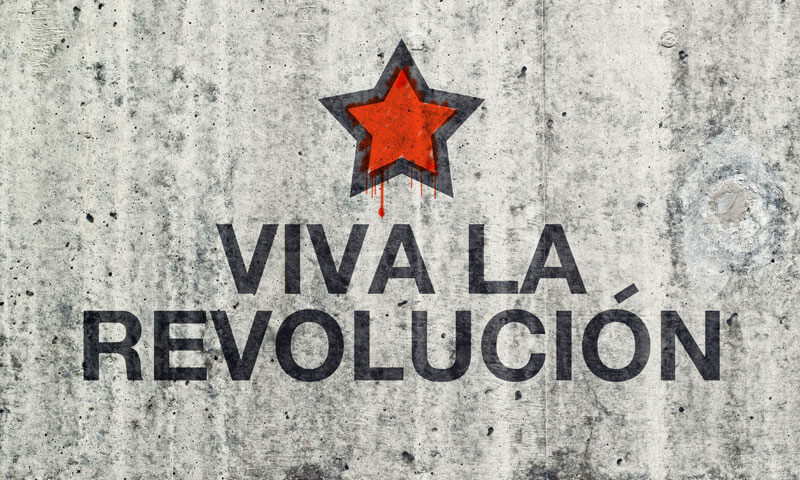
Can Core Beliefs Withstand Scrutiny?
Among other things, de Maistre had the audacity to propound what some of us believe on a gut level, but are not gauche enough to say out loud, namely, that the most important beliefs in life should not be looked at too closely; otherwise, they will fall apart under scrutiny and leave us worse off than if we had not looked at them in the first place. I know that this sounds like superstition (it is). More important, it is wrong. Most important, it is counterproductive.
In his Essay on the Generative Principle of Political Constitutions, de Maistre set forth his belief that a nation's constitution should never be written and that it could not be. Rather, he said, the constitution of a nation is the sum of the historical beliefs of a people. To write them down, he posited, would be to hold them up to scrutiny-and to their detriment. He believed that the guiding force of a society should never be reduced to a writing, because such a thing was impossible and too large for mere words-"a little bit of ink"-to contain. I am not quite sure what he thought should be in their stead; perhaps the question did not bother him, as most nations were in a pre-constitutional state anyway. I suppose the result would be a sort of Adam Smith "invisible hand" guiding a nation's laws through the interplay of tradition and the continuation of social privileges. Well, de Maistre's ideas didn't prevent nation after nation from doing just what he proposed and codifying (to one extent or another) their most basic laws into written constitutions.
De Maistre was correct in some respects, however. When basic, well-cherished, and perhaps not well-thought-out ideas and beliefs are held up to scrutiny, they may not stand the rigors of analysis. Further, some may be outmoded, unnecessary, and even dangerous. I hope that the answer to this is no great leap for the reader. Of course, to a modern mind, the answer is simple: Sit down and carefully update what those cherished beliefs and ideas are. In short: Get better ones!
The Professional Plan as a Tool for Understanding Our Beliefs
Do not be too smug. What makes sense on the grand political scale applies to smaller groups and individuals too. All of us have operating beliefs that to one extent or another need to be revisited. So do it.
As the context of this article is professional development, I will propose a narrow, practical tool for getting to the bottom of these ideas: the professional plan. If you hang around self-help seminars, read modern books on "getting ahead," or (gasp!) leave your radio tuned to AM self-help stations, you will have been exposed to a number of theories on how to create the perfect plan-and how to write it. Some of these are incredibly intricate. I recently returned from a seminar in San Diego, where one presenter distributed a plan diagram showing 11 categories ranging from such easy concepts like "goals," "strengths," and "weaknesses" to the more esoteric "principles," "values," "missions," and "potentialities." It seems that every new guru has his or her own particular spin on how each of these is to be defined and how they are to be arrived at.
Don't worry. I do not believe that this level of complexity is necessary or even beneficial. However, I do believe that each professional needs a tool for examining and carrying out his or her career success to date-and creating a plan for further success. If that is all you take with you from this article, it will be enough. I believe you should, however, develop your own tool for charting your career and plotting your success. I have my own simple recipe for the same.
Each plan should be as unique as the individual creating it. However, I believe there are some similarities. At its most basic level, a professional plan should incorporate the elements of goals, projects, and tasks. Many people, I surmise, would be happy to create some sort of professional plan, but have some trepidation in starting. If so, they may be under the delusion that a plan must be born wholly formed and then merely "scrivenered" out on paper. Far from it. Instead, the plan is a process by which the individual comes to understand what he or she wants and develops projects and tasks to work toward that understanding.
Practical Tips
Some basic hints. First, begin writing before you have any idea what to say. I think beginning with a vision is nice. When I say "vision," what I really mean is your dream, a fantasy, if you will. You may have a very specific one (become the greatest trial lawyer of all time) or it may be more banal (become wealthy enough to retire in "x" years). Of course there are no "right" answers; the point is to uncover what you are already thinking-to bring your collection of unspoken motives out into the open to be admired or chucked. So, write down what it is that you really want out of life, your career, your family-anything. You can sort it all out later. If you are brave enough to indulge in this exercise, and revisit your notes periodically, they will begin to coalesce. Eventually, you may come down to one, three, or seven statements that concretely state what you hope to accomplish-and perhaps even why. These fantasies or visions about where you may want to "end up" can form the basis for more concrete professional goals. Or not.
Regardless, I believe that a very important component of the plan is to identify projects and tasks that you want to begin. By "projects" I mean collective tasks. By "tasks" I mean individual actions that are geared to bring the project to fruition. Basically, you should identify activities that you want to engage in and take the time to break them down into concrete steps. Alternatively, you may want to divide your projects/tasks into two types: for example, as "goals" and "disciplines." I like this designation because it helps me think in concrete terms. For example, as a recruiter, I have the "goal" of helping as many candidates as I reasonably can present themselves favorably to potential law firm employers. To get there, I need to write submission packages. Thus, one of my goals is to help candidates; my discipline associated with that goal is to write four submission packages a week.
Conclusion: No "Imposed" Plans-Yours Must
Be a Synthesis of Old Beliefs and New Ideas
You may have noticed that I am falling into the trap that I derided just a few paragraphs ago: I am slipping into using more and more vocabulary to describe what ought to be simple. But that is the point, really. If you begin the process of putting your dreams, goals, desires, worthy disciplines, etc., down on paper, you will develop your own categories, your own designations. The point is to engage in the process and see what happens. Be your own "professional plan" guru! However, if you feel daunted by that much freedom, I will indulge you and give you my own (current!) components for a dynamic professional plan: Visions (I have five of them), Goals (I currently have six), Disciplines (currently I have 16; some daily, some weekly, some monthly), and Quantifiables (I have four; one of these is to write a certain number of articles in a prescribed amount of time!).
I end this as I began. I propose that each of us has a number of beliefs and values that we act upon, many of which are not fully conscious or spoken. I do not believe, unlike our friend the Comte de Maistre, that we are better off not investigating them. Rather, we should uncover them, discover them, write them down. I will let you in on a little secret, however, and that is there is one thing that de Maistre and I are in agreement with. That is that we cannot impose a "constitution" on ourselves and hope to make it stick. We cannot sit down in 15 minutes and decide what we think we "ought" to be doing, format it, and call it a professional plan. Rather, we must, in order to really spur us on to long-term and effective action, understand what we have been "growing" organically all our lives. Then, and only then, can we confidently modify and turn ourselves toward greater satisfaction and success in our professional lives. Vive la revolucion!!!
About Harrison Barnes
No legal recruiter in the United States has placed more attorneys at top law firms across every practice area than Harrison Barnes. His unmatched expertise, industry connections, and proven placement strategies have made him the most influential legal career advisor for attorneys seeking success in Big Law, elite boutiques, mid-sized firms, small firms, firms in the largest and smallest markets, and in over 350 separate practice areas.
A Reach Unlike Any Other Legal Recruiter
Most legal recruiters focus only on placing attorneys in large markets or specific practice areas, but Harrison places attorneys at all levels, in all practice areas, and in all locations-from the most prestigious firms in New York, Los Angeles, and Washington, D.C., to small and mid-sized firms in rural markets. Every week, he successfully places attorneys not only in high-demand practice areas like corporate and litigation but also in niche and less commonly recruited areas such as:
- Immigration Law
- Workers Compensation
- Insurance
- Family Law
- Trust and Estate
- Municipal law
- And many more...
This breadth of placements is unheard of in the legal recruiting industry and is a testament to his extraordinary ability to connect attorneys with the right firms, regardless of market size or practice area.
Proven Success at All Levels
With over 25 years of experience, Harrison has successfully placed attorneys at over 1,000 law firms, including:
- Top Am Law 100 firms such including Sullivan and Cromwell, and almost every AmLaw 100 and AmLaw 200 law firm.
- Elite boutique firms with specialized practices
- Mid-sized firms looking to expand their practice areas
- Growing firms in small and rural markets
He has also placed hundreds of law firm partners and has worked on firm and practice area mergers, helping law firms strategically grow their teams.
Unmatched Commitment to Attorney Success - The Story of BCG Attorney Search
Harrison Barnes is not just the most effective legal recruiter in the country, he is also the founder of BCG Attorney Search, a recruiting powerhouse that has helped thousands of attorneys transform their careers. His vision for BCG goes beyond just job placement; it is built on a mission to provide attorneys with opportunities they would never have access to otherwise. Unlike traditional recruiting firms, BCG Attorney Search operates as a career partner, not just a placement service. The firm's unparalleled resources, including a team of over 150 employees, enable it to offer customized job searches, direct outreach to firms, and market intelligence that no other legal recruiting service provides. Attorneys working with Harrison and BCG gain access to hidden opportunities, real-time insights on firm hiring trends, and guidance from a team that truly understands the legal market. You can read more about how BCG Attorney Search revolutionizes legal recruiting here: The Story of BCG Attorney Search and What We Do for You.
The Most Trusted Career Advisor for Attorneys
Harrison's legal career insights are the most widely followed in the profession.
- His articles on BCG Search alone are read by over 150,000 attorneys per month, making his guidance the most sought-after in the legal field. Read his latest insights here.
- He has conducted hundreds of hours of career development webinars, available here: Harrison Barnes Webinar Replays.
- His placement success is unmatched-see examples here: Harrison Barnes' Attorney Placements.
- He has created numerous comprehensive career development courses, including BigLaw Breakthrough, designed to help attorneys land positions at elite law firms.
Submit Your Resume to Work with Harrison Barnes
If you are serious about advancing your legal career and want access to the most sought-after law firm opportunities, Harrison Barnes is the most powerful recruiter to have on your side.
Submit your resume today to start working with him: Submit Resume Here
With an unmatched track record of success, a vast team of over 150 dedicated employees, and a reach into every market and practice area, Harrison Barnes is the recruiter who makes career transformations happen and has the talent and resources behind him to make this happen.
A Relentless Commitment to Attorney Success
Unlike most recruiters who work with only a narrow subset of attorneys, Harrison Barnes works with lawyers at all stages of their careers, from junior associates to senior partners, in every practice area imaginable. His placements are not limited to only those with "elite" credentials-he has helped thousands of attorneys, including those who thought it was impossible to move firms, find their next great opportunity.
Harrison's work is backed by a team of over 150 professionals who work around the clock to uncover hidden job opportunities at law firms across the country. His team:
- Finds and creates job openings that aren't publicly listed, giving attorneys access to exclusive opportunities.
- Works closely with candidates to ensure their resumes and applications stand out.
- Provides ongoing guidance and career coaching to help attorneys navigate interviews, negotiations, and transitions successfully.
This level of dedicated support is unmatched in the legal recruiting industry.
A Legal Recruiter Who Changes Lives
Harrison believes that every attorney-no matter their background, law school, or previous experience-has the potential to find success in the right law firm environment. Many attorneys come to him feeling stuck in their careers, underpaid, or unsure of their next steps. Through his unique ability to identify the right opportunities, he helps attorneys transform their careers in ways they never thought possible.
He has worked with:
- Attorneys making below-market salaries who went on to double or triple their earnings at new firms.
- Senior attorneys who believed they were "too experienced" to make a move and found better roles with firms eager for their expertise.
- Attorneys in small or remote markets who assumed they had no options-only to be placed at strong firms they never knew existed.
- Partners looking for a better platform or more autonomy who successfully transitioned to firms where they could grow their practice.
For attorneys who think their options are limited, Harrison Barnes has proven time and time again that opportunities exist-often in places they never expected.
Submit Your Resume Today - Start Your Career Transformation
If you want to explore new career opportunities, Harrison Barnes and BCG Attorney Search are your best resources. Whether you are looking for a BigLaw position, a boutique firm, or a move to a better work environment, Harrison's expertise will help you take control of your future.
Submit Your Resume Here to get started with Harrison Barnes today.
Harrison's reach, experience, and proven results make him the best legal recruiter in the industry. Don't settle for an average recruiter-work with the one who has changed the careers of thousands of attorneys and can do the same for you.
About BCG Attorney Search
BCG Attorney Search matches attorneys and law firms with unparalleled expertise and drive, while achieving results. Known globally for its success in locating and placing attorneys in law firms of all sizes, BCG Attorney Search has placed thousands of attorneys in law firms in thousands of different law firms around the country. Unlike other legal placement firms, BCG Attorney Search brings massive resources of over 150 employees to its placement efforts locating positions and opportunities its competitors simply cannot. Every legal recruiter at BCG Attorney Search is a former successful attorney who attended a top law school, worked in top law firms and brought massive drive and commitment to their work. BCG Attorney Search legal recruiters take your legal career seriously and understand attorneys. For more information, please visit www.BCGSearch.com.
Harrison Barnes does a weekly free webinar with live Q&A for attorneys and law students each Wednesday at 10:00 am PST. You can attend anonymously and ask questions about your career, this article, or any other legal career-related topics. You can sign up for the weekly webinar here: Register on Zoom
Harrison also does a weekly free webinar with live Q&A for law firms, companies, and others who hire attorneys each Wednesday at 10:00 am PST. You can sign up for the weekly webinar here: Register on Zoom
You can browse a list of past webinars here: Webinar Replays
You can also listen to Harrison Barnes Podcasts here: Attorney Career Advice Podcasts
You can also read Harrison Barnes' articles and books here: Harrison's Perspectives
Harrison Barnes is the legal profession's mentor and may be the only person in your legal career who will tell you why you are not reaching your full potential and what you really need to do to grow as an attorney--regardless of how much it hurts. If you prefer truth to stagnation, growth to comfort, and actionable ideas instead of fluffy concepts, you and Harrison will get along just fine. If, however, you want to stay where you are, talk about your past successes, and feel comfortable, Harrison is not for you.
Truly great mentors are like parents, doctors, therapists, spiritual figures, and others because in order to help you they need to expose you to pain and expose your weaknesses. But suppose you act on the advice and pain created by a mentor. In that case, you will become better: a better attorney, better employees, a better boss, know where you are going, and appreciate where you have been--you will hopefully also become a happier and better person. As you learn from Harrison, he hopes he will become your mentor.
To read more career and life advice articles visit Harrison's personal blog.





